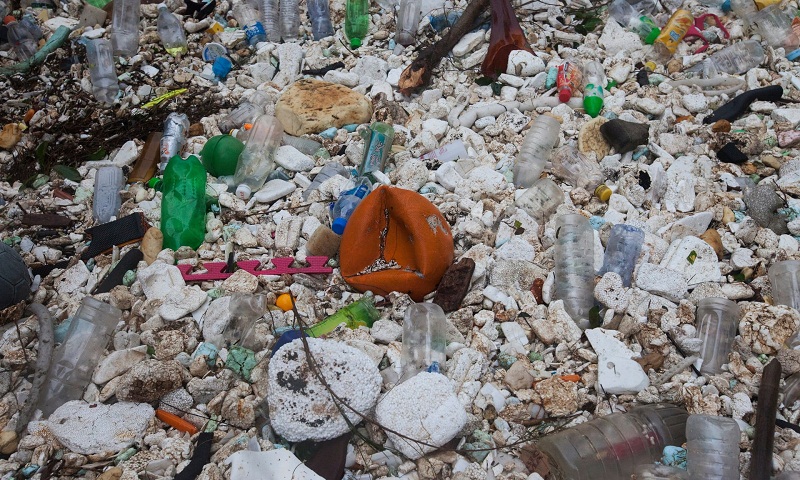EU rules out tax on plastic products to reduce waste

The EU has ruled out penalties on single-use plastic products, in favour of raising public awareness of the damage consumer plastics are doing to the world’s oceans. Frans Timmermans, vice president of the European commission, said a tax would “not be sustainable”, but that changing the way plastic was produced and used could work. “The only sustainable method is to create recyclable plastic and take out microplastics. You can’t take out microplastics with a tax. You need to make sure things are reused, and not put in the ocean.” He said the commission was working with manufacturers to help change their products and packaging. Karmenu Vella, environment commissioner, also pledged that the EU’s long-awaited plastics strategy would be published by the end of the year. The European commission cannot raise taxes directly, but can encourage member states to do so, and can impose other penalties, as with the emissions trading scheme to reduce carbon from heavy industry. Timmermans rejected outright charges and taxes on single-use plastic, and was reluctant to consider legislative measures, but called instead for public information campaigns on the problems plastics cause. “It is not that we, through legislation, should force [producers of plastic to change], though if we have to we might, but through public awareness, to urge countries to raise awareness,” he said. “Nothing disciplines companies more than consumer practices. We are on the verge of changing consumer habits. I sense a turning point, like that we saw 10 to 15 years ago on climate change,” he told journalists at the Our Ocean conferencein Malta. “That was what happened with recycling. Who made us recycle? Our kids. I don’t think there is one producer of consumer goods that would go against the grain of public awareness.” At present, only about 6% of plastic waste is recycled within the EU. In part, this is because of the many different forms of plastic that are used in consumer goods, and the difficulty of returning them to the kind of versatility that virgin plastics enjoy. But Timmermans said consumers would accept “less flashy” and less aesthetically pleasing packaging, if they understood it would help remove pollution from the oceans. Vella added that companies should design plastic products with reuse in mind from the outset: “The circular economy is the most effective way to deal with plastics.” He promised that the forthcoming plastics strategy would include design, recycling, biodegradable plastics, single-use plastics and microplastics. The commission is also to remove single-use plastics, including drinking vessels, from its own offices by the end of this year. The commission is to devote €550m (£490m) to projects that improve the health of the oceans, from marine protection zones and satellite monitoring, to plastic waste disposal. At the conference, more than €6bn was pledged in total by governments, institutions and private sector companies towards efforts to combat overfishing, pollution, plastic waste, ocean acidification and other threats to the marine environment.
Read More:

